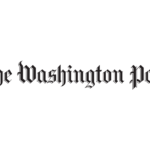The closest brush: How a UN secretary-general averted doomsday
By A. Walter Dorn, Robert Pauk | November 1, 2012
A half-century after the Cuban Missile Crisis, the world still overlooks the role played by U Thant—the quiet, unassuming UN secretary-general from Burma—in helping the superpowers resolve their crisis and avert nuclear war. Thant sent early and important messages to President John F. Kennedy and Soviet Premier Nikita Khrushchev. The first requested a moratorium on the conflict at sea. Although many of Kennedy’s advisers looked upon Thant’s initiative with derision, Kennedy asked Thant to send another message requesting a cessation of Soviet shipping. The message gave Khrushchev a way to stop his ships but still save face. This ended the threat of a naval confrontation and enabled the superpowers to focus on the deeper issues of the conflict. Early on, Thant also proposed and pushed the idea that eventually formed the basis of agreement: Soviet missile withdrawal in exchange for guarantees of Cuban security. During moments in the crisis when many were calling for an attack on Cuba, Kennedy and Secretary of State Dean Rusk cited Thant’s initiatives as reasons for restraint. Thant also shuttled to Cuba to mollify Prime Minister Fidel Castro and to confirm that missile dismantlement had begun. He then aided the negotiations between Soviet and American teams at the United Nations to resolve remaining issues, such as how the missile withdrawal was to be verified.
Together, we make the world safer.
The Bulletin elevates expert voices above the noise. But as an independent nonprofit organization, our operations depend on the support of readers like you. Help us continue to deliver quality journalism that holds leaders accountable. Your support of our work at any level is important. In return, we promise our coverage will be understandable, influential, vigilant, solution-oriented, and fair-minded. Together we can make a difference.
Issue: Bulletin of the Atomic Scientists Volume 68 Issue 6
Keywords: Cuban Missile Crisis, Kennedy, Khrushchev, U Thant, United Nations, nuclear war
Topics: Uncategorized















